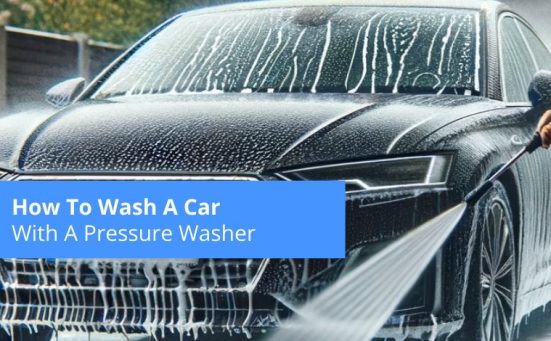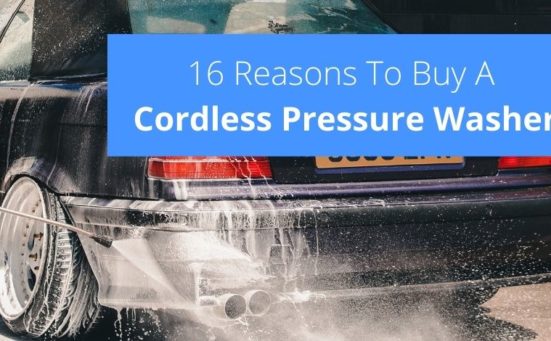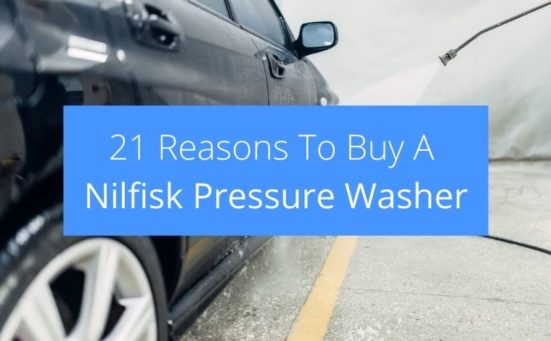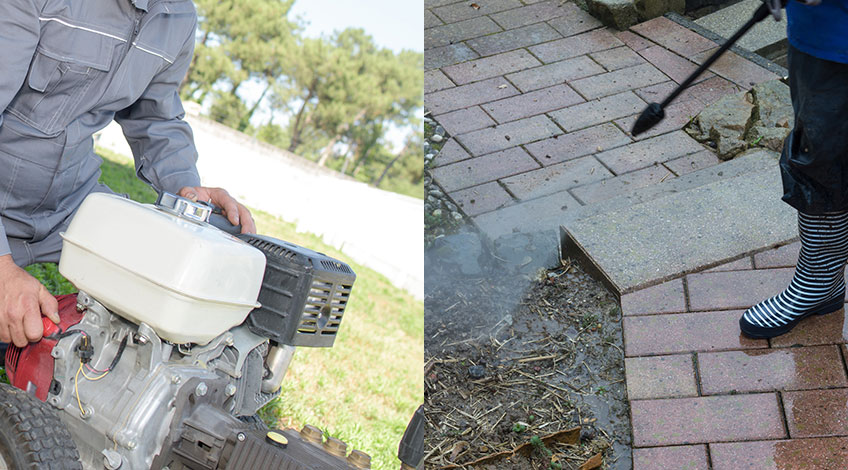
Gas Vs Electric Pressure Washer – Which Is Best (petrol or electric)?
If you’re reading this, you’ve probably already spent ages looking at all the different types of pressure washers and what they do. How different nozzles produce differing levels of power, your head is probably swimming with words like detergent attachment, PSI, flow rate, and many more. And then, just when you thought it couldn’t get any more confusing you notice gas-powered pressure washers.
So now you have a whole new minefield to negotiate. Well, don’t worry, because now you’ve landed here it will soon be crystal clear. Read on and you’ll see we’ve got it all covered for you, all you need to know on the differences and similarities of petrol and electric powered pressure washers.
The way we’ve put this page together is all for your convenience and ease of use. We use clear headings and titles and we have included an interactive table of contents, so you can jump straight to the part you need to know. That said it took us a long while to compile this guide so we’d appreciate you reading it all.
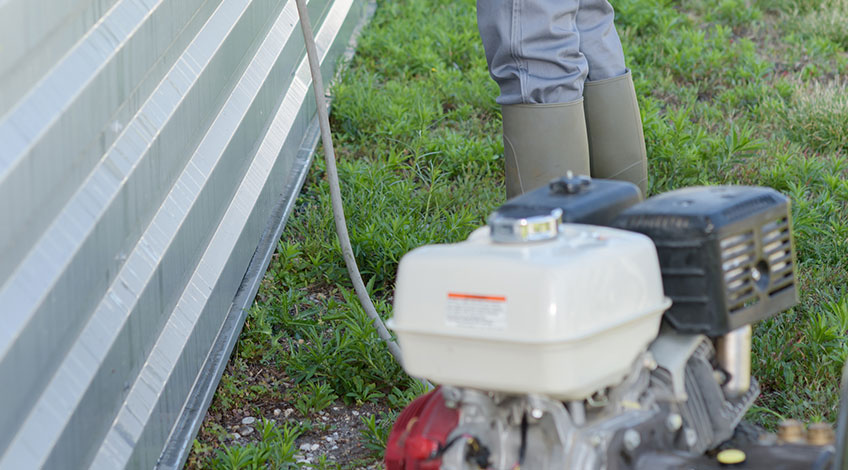
You might just find out some things you’ve not learned already. Information that will help you to decide which type of pressure washer is best suited to your needs. For instance, how often you plan on using your pressure washer can play a big part in deciding which type you buy. Also, your level of mechanical ability will make a difference too, and your strength will play a part as well.
So let’s get into petrol vs electric pressure washers – a guide to which is best. First up let’s explain the gas thing, here in the UK we call it petrol or diesel, across the pond our North American cousins call it gas. So if you’re British don’t be confused into thinking we’re referring to propane or natural gas-powered pressure washers.
Now that’s cleared up let’s continue.
Why Choose An Electric Pressure Washer?
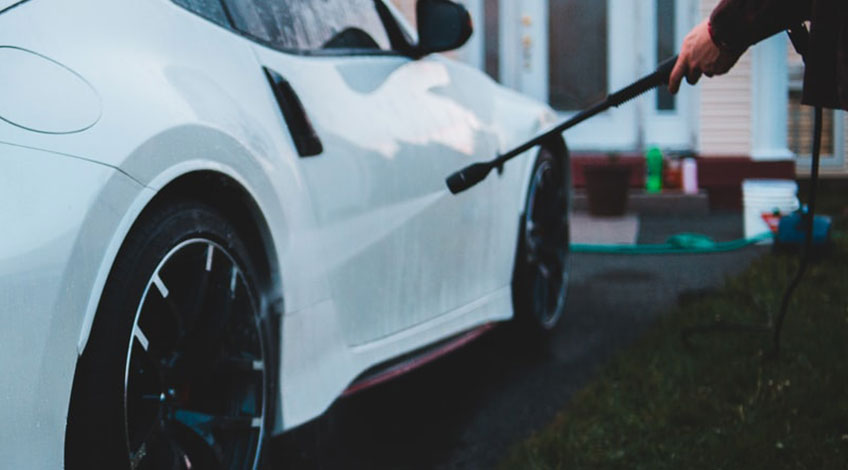
The first and most obvious reason to go for an electric-powered pressure washer is it doesn’t need filling with fuel. But let’s do this properly and look at the pros and cons.
What Are The Advantages Of An Electric-powered Pressure Washer?
- Light-Weight – Compared to petrol pressure washers, electric models are considerably lighter. This is because electric models don’t have to carry fuel, the power comes through the cable.
- Cheaper to buy – There is a significant difference in the price of electric and gas-powered pressure washers. With electric models being at least £50 – £60 cheaper than similar spec petrol models.
- Less maintenance – No need to change the oil, change the spark plug, change the oil in the water pump, and so on.
- More attachments – You get many more attachments with an electric-powered pressure washer than a petrol-powered model. Detergent attachment for example, and various nozzles for varying spray power and spray pattern, etc.
- Less noise – No power washer is silent, but electric-powered are far quieter than petrol-powered models. No engine noise for a start.
- Easy to operate – Once they are connected to the power supply and water supply, an electric pressure washer is ready to go at the click of a switch. Whereas petrol models need to be hand-cranked by exerting quite considerable pressure on the pull string.
What Are The Disadvantages Of An Electric-powered Pressure Washer?
Compared to a petrol-powered pressure washer, electric pressure washers have a few disadvantages, they are:
- Lower power range – The top end for an electric power washer is around 2,000 pounds per square inch (PSI) whereas petrol-powered models top out at double that at 4,000PSI on some models.
- Limited range – Being attached to a power supply via a cable means the electric pressure water cannot be moved far. For the average-sized garden path or driveway that’s fine. But it can cause problems on larger properties or areas.
- Less lifespan – As electric pressure washers are self-contained units, it is virtually impossible to replace any working parts. So when the motor breaks, it’s time to buy a new model. Where petrol models can easily be stripped down and have parts replaced.
- Coldwater only – Many stains are easier to remove with hot water, electric-powered pressure washers don’t heat up the water, relying on water pressure alone to remove stains.
Why Choose A Gas/Petrol-Powered Pressure Washer?
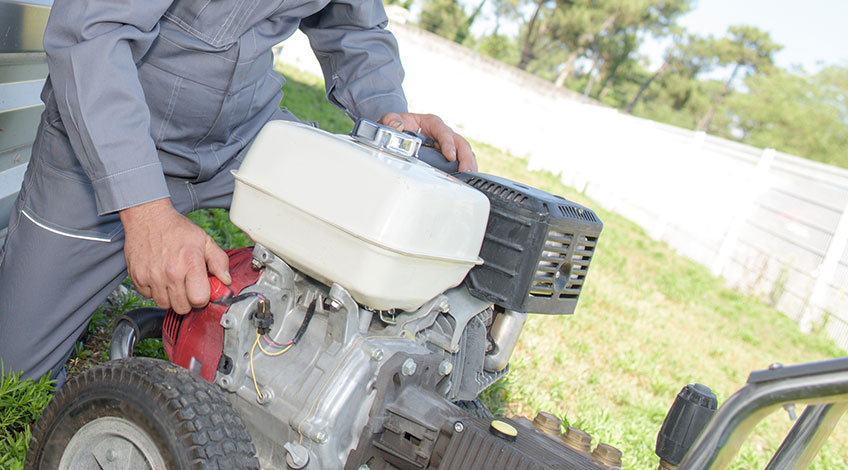
We’ve looked at the electric models pros and cons. Let’s do the same with the gas/petrol-powered models.
What Are The Advantages Of A Gas-powered Pressure Washer?
The following list will almost certainly contain the points covered in the electric-powered pressure washer list, but on opposite sides.
- More powerful – Many gas-powered pressure washers are capable of 4,000 PSI compared to the top PSI in electric models of 2,000 PSI.
- More flexibility – As petrol models are not limited by any cables they can cover greater distances than their electric counterparts.
- Longer lasting – Gas-powered models can be stripped down and rebuilt using replacement parts if needed. This is not possible on electric models. Petrol-powered models will therefore last much longer before needing to be replaced.
- Hot water cleaning power – Petrol-powered power washers heat up the water before powering it through the hose pipe, making stubborn stains much easier to remove.
What Are The Disadvantages Of A Gas/Petrol-powered Pressure Washer?
There are a few disadvantages to consider as well with the gas-powered models, these are:
- Heavier – As they have a larger engine, and need fuel to run on, gas-powered pressure washers weigh considerably more than electric-powered models. Many have wheels to make it easier to move them, but they still weigh more overall.
- Cost more to purchase – Gas-powered models tend to be at least £50 to £60 dearer than electric models. Also, if you go for the cheaper end of the petrol-powered pressure washers they tend to be the least powerful models.
- High maintenance – Not only do you have to remember to keep fuel in petrol-powered pressure washers, but you will also have to top up engine oil, water pump oil, replace spark plugs and other maintenance tasks not necessary with electric models.
- Noisier – Gas-powered pressure washers tend to be much noisier overall than electric-powered models.
- Harder to operate – Gas-powered pressure washers are heavier, making them much more difficult to manoeuvre than electric models. They also take much more to start, if you are physically challenged in any way, a petrol-powered unit will be much more of a challenge than an electric washer.
- Limited range of attachments – Electric-powered pressure washers have many more attachments than gas-powered units. Gas-powered pressure washers rely more on heat than concentrated water power.
Petrol-Powered Vs Electric-Powered Power Washer – Which Is Best?
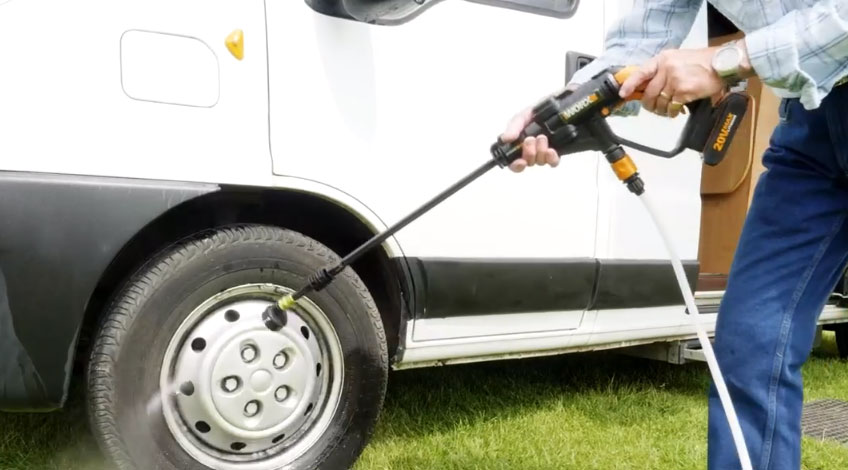
You now have the pros and cons of both types of power washer. It’s down to you now, consider how often you plan on using it, how important is manoeuvrability? Will you need more power? More heat? Can you maintain a gas-powered model? How long do you expect it to last? How much are you willing to pay?
If you intend using the power washer regularly on your home patio, pathways, driveways, etc, it’s probably best for you to choose an electric-powered power washer. Assuming you have access to an electrical socket outdoors.
For more industrial usages, when more power is required, and if you have no electrical power in the vicinity you wish to use the power washer, then a petrol-powered pressure washer will probably be your best choice.
We have found that most people who own electric-powered pressure washers tend to use them on a much more regular basis than those who own a gas-powered power washer. Petrol models will cost more but in general, will last much longer than the electric models.
If you’re not at all mechanically minded, then definitely go for an electric-powered pressure washer, these can be picked up fairly cheaply, starting at around £50 for a basic model. Whereas a petrol-powered model starts at around £200 and will need maintaining mechanically. Given the price differential, even if the electric models don’t last as long, you could realistically go through 4 electric ones for the price of the basic petrol model.
Frequently Asked Questions
Electric power washers are smaller, weigh less, cost less to buy, and have virtually no maintenance. However, gas power washers can be used in more places because they’re not restricted by the power cable, use hot water instead of cold and larger models are more powerful than electric models.
Gallons per minute (GPM) is more important if you are using detergents. Whereas, pounds per square inch (PSI) is more important if you are relying solely on water pressure.
Any time electricity and water mix, there is the potential for electrocution. It is always best practice to use a circuit breaker to prevent accidents.
The difference between pressure and power washers is that pressure washers rely on just water pressure and power washers use heated water.
Also, follow us on Pinterest ...

